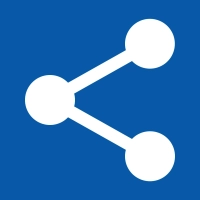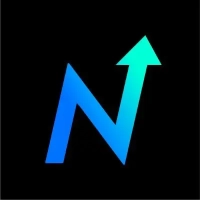The Future is Here: Understanding the Evolution of Decentralized Social Networking
As we enter the era of Web3.0 and beyond, the evolution of decentralized social networking is bringing about significant changes to the way we connect and interact online. With the integration of blockchain technology, next-gen interaction and distributed networks are becoming the foundation of our digital landscape. From tokenized relationships to pioneering technologies, the future of online interaction is set to be transformative. November 18, 2023 16:55
This blog delves into the innovations in social media, the decentralized connectivity of tomorrow, and the enhanced social experiences that await us in this exciting new era.
What is decentralized social networking and why is it important?
Decentralized social networking is a concept that disrupts the conventional model of centralized platforms by empowering users with ownership and control over their own data. In a decentralized network, user data is stored across multiple nodes rather than in a central server. This ensures greater privacy, security, and transparency, as well as eliminates the risk of data breaches or censorship.
The importance of decentralized social networking lies in its ability to empower individuals and communities, giving them the freedom to choose how their data is shared and utilized. It eliminates the reliance on intermediaries and puts the power back into the hands of the users.
By embracing decentralized social networking, we can create a more inclusive and democratic digital space, where users have equal access and opportunities, and where trust is built upon consensus mechanisms rather than centralized authorities. The future of social networking is decentralized, and it offers a range of possibilities for innovation, collaboration, and community building. Stay tuned as we explore these exciting prospects in the upcoming sections.
The evolution of social networking: From centralized to decentralized platforms
The evolution of social networking has seen a significant shift from traditional centralized platforms to decentralized alternatives. In the early days, social networking platforms relied heavily on centralized servers to store and manage user data. This centralized model meant that users had limited control over their own data and were vulnerable to privacy breaches and censorship.
However, with the rise of blockchain technology, decentralized social networking platforms have emerged as a powerful alternative. These platforms leverage the decentralized nature of blockchain to distribute user data across multiple nodes, ensuring greater security and privacy for users.
Decentralized social networking platforms also introduce innovative features such as user-controlled data sharing, micropayments, and decentralized governance models. These features empower users to have full ownership and control of their data, while also giving them a say in the decision-making processes of the platform.
As decentralized social networking platforms continue to evolve, we can expect to see further advancements in areas such as interoperability, scalability, and user experience. These advancements will contribute to the growing adoption of decentralized networks, ultimately shaping the future of social networking. Stay tuned for more insights on the exciting progress in this space.
Benefits of decentralized social networking
Decentralized social networking platforms offer numerous benefits that distinguish them from their centralized counterparts. Firstly, decentralized networks provide enhanced security and privacy for users. By distributing user data across multiple nodes, the risk of data breaches or unauthorized access is greatly reduced. Users have greater control over their personal information and can choose who they share it with.
Additionally, decentralized platforms enable users to monetize their data through micropayments and other incentivization mechanisms. This empowers individuals to profit from their own content and contributions, fostering a fairer and more sustainable social networking ecosystem.
Moreover, decentralized social networking platforms often implement decentralized governance models, enabling users to actively participate in decision-making processes. This allows for a more democratic and transparent platform, where users have a say in shaping the direction of the network.
Ultimately, decentralized social networking offers a vision of a more user-centric and resilient internet, where individuals have greater control over their online presence and can engage in a more authentic and secure social experience.
Challenges of decentralized social networking
While decentralized social networking platforms offer a promising future, they are not without their challenges. One major obstacle is the scalability of these networks. As the user base grows, the sheer volume of data being processed and stored across multiple nodes can strain the network's capacity. Solutions must be developed to ensure efficient and fast processing of data without compromising security and privacy.
Another challenge is adoption. Decentralized social networking platforms require a critical mass of users to be successful. Convincing users to switch from well-established centralized platforms to a new decentralized alternative can be difficult. Education and awareness about the benefits of decentralized networks will be key in overcoming this challenge.
Interoperability is also a hurdle to overcome. Many decentralized platforms are built using different protocols and standards, making it difficult for users on one platform to communicate and interact with users on another. Establishing interoperability standards will be crucial in creating a seamless and interconnected decentralized social networking ecosystem.
Despite these challenges, the potential benefits of decentralized social networking make it an area worth exploring and investing in. As technology continues to advance, we can expect to see further progress in overcoming these obstacles, paving the way for a more inclusive and user-centric future in social networking.
How to navigate the decentralized social networking landscape
In today's rapidly evolving digital landscape, navigating the world of decentralized social networking can seem daunting. However, with the right approach and knowledge, you can embrace these new platforms to connect with others in a more secure and user-centric way.
To begin, it is essential to familiarize yourself with the different decentralized social networking platforms available. Each platform has its unique features and benefits, so take the time to explore and understand what they offer. Some popular options include Mastodon, Diaspora, and Steemit.
When choosing a decentralized social networking platform, consider factors such as user base, privacy features, and ease of use. It's also important to keep in mind the interoperability challenge mentioned earlier. Look for platforms that are actively working towards establishing interoperability standards, as this will enhance your ability to connect and communicate with users on other platforms.
Once you've selected a platform, take the time to familiarize yourself with its privacy settings. Decentralized networks are known for their emphasis on privacy and security, so understanding and utilizing these features will help protect your data and keep your online presence secure.
Lastly, don't hesitate to join relevant online communities and forums dedicated to decentralized social networking. These communities can provide valuable insights, tips, and support as you navigate this new landscape. By actively participating in these communities, you can contribute to the growth and development of decentralized social networking as a whole.
In conclusion, while decentralized social networking may present challenges, it also offers exciting opportunities for a more inclusive and secure digital future. By understanding the landscape, choosing the right platform, and actively engaging with the community, you can embrace the potential benefits of decentralized social networking and be at the forefront of this digital revolution.
Stay tuned for more blog updates on the latest advancements and trends in decentralized social networking!
The future of decentralized social networking
As we continue to explore the evolution of decentralized social networking, it is crucial to discuss the future of this rapidly advancing technology. While the current landscape of decentralized social networking is already promising, the future holds even more exciting developments.
One of the key areas where we can expect to see significant progress is in the interoperability between different decentralized social networking platforms. As mentioned earlier, interoperability is a challenge that hinders seamless communication between users on different platforms. However, many developers and organizations are actively working towards establishing interoperability standards. Once achieved, this will enable users on different platforms to connect, communicate, and share content effortlessly.
Moreover, advancements in blockchain technology hold great potential for decentralized social networking. Blockchain's transparent and decentralized nature can enhance the security, privacy, and trustworthiness of these platforms. With blockchain, users can have greater control over their data and protect their privacy in an era where data breaches and privacy concerns are prevalent.
Additionally, artificial intelligence (AI) and machine learning technologies might play a crucial role in the future of decentralized social networking. These technologies can analyze vast amounts of data, detect patterns, and provide personalized content recommendations to users. This could result in more engaging user experiences and a more tailored approach to content consumption.
In conclusion, the future of decentralized social networking is filled with tremendous possibilities. From improved interoperability to advancements in blockchain and AI, these developments will further enhance the security, privacy, and user experience on these platforms. As we eagerly anticipate these advancements, let's continue to learn, adapt, and embrace the ever-evolving landscape of decentralized social networking. Don't forget to join us for our upcoming blog updates, where we will delve deeper into the latest advancements and trends in this exciting field!
Embracing the revolution of decentralized social networking
In conclusion: Embracing the revolution of decentralized social networking
The rapid evolution of decentralized social networking is revolutionizing the way we connect and interact online. With the exciting possibilities on the horizon, it is essential for users, developers, and organizations to embrace this revolutionary technology.
Decentralized social networking offers a wide range of benefits, including enhanced privacy, increased user control, and improved security. By leveraging the power of blockchain technology, users have greater control over their data, keeping it secure and confidential. This technology also allows for transparent and trustworthy communication, eliminating the need for intermediaries.
Furthermore, the future of decentralized social networking holds promises of improved interoperability, allowing users on different platforms to seamlessly communicate and share content. This will create a more connected and inclusive social networking experience for everyone.
As we move forward, it is crucial to stay informed about the latest advancements and trends in decentralized social networking. By understanding the potential of this technology, we can actively contribute to its growth and shape its future.
Let's embrace this revolution and continue to explore the limitless possibilities that decentralized social networking has to offer. Together, we can build a more secure, private, and interconnected online world.
User Comments (0)
Popular DeSo Apps










